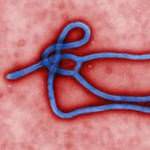Ebola vaccine trial successful
The rVSV-ZEBOV vaccine against Ebola is 100% successful in trials involving 4000 people which are conducted in Guinea. Brende says:
Having seen the devastating effects of Ebola on communities and even whole countries with my own eyes, I am very encouraged by today’s news. This new vaccine, if the results hold up, may be the silver bullet against Ebola, helping to bring the current outbreak to zero and to control future outbreaks of this kind. I would like to thank all partners who have contributed to achieve this sensational result, due to an extraordinary and rapid collaborative effort.
Fast tracked
ZMapp is granted fast track approval in America. LeafBio says the grant is an “important milestone” which brings them closer to eventually gaining approval. The drug has been administered under emergency use authorization to nine infected patients in Africa in addition to two infected missionaries in Europe during its first clinical trial. LeafBio CEO Whaley:
We are gratified to receive this designation for ZMapp. We are hopeful that this step will accelerate its access once safety and efficacy are demonstrated to satisfaction by FDA in ongoing clinical trials.
Admitted to hospital
After falling ill in Glasgow, Cafferkey is flown to London by military aircraft and admitted to the specialist treatment isolation unit at Royal Free Hospital in London.
We can confirm that Pauline Cafferkey was transferred from the Queen Elizabeth University Hospital in Glasgow to the Royal Free London hospital in the early hours of this morning due to an unusual late complication of her previous infection by the Ebola virus. She will now be treated in isolation in the hospital’s high-level isolation unit under nationally agreed guidelines. The Ebola virus can only be transmitted by direct contact with the blood or bodily fluids of an infected person while they are symptomatic, so the risk to the general public remains low.
Condition deteriorates
Doctors say Cafferkey is now in critical condition, and that she is suffering an “unusual late complication” of her previous infection. Health authorities have emphasised that the risk to the general public remains low. However, 58 people who had been in close contact with her are being monitored by Health Protection Scotland, 25 of them have been vaccinated.
Liberian epidemic ends
Liberia passes two 21-day incubation cycles with no new Ebola cases, passing the threshold for declaring the country’s epidemic to be over. This has led the WHO to declare West Africa’s Ebola epidemic to be over as well, although the organization cautions that the region may still see flare-ups. Ebola killed more than 11,000 people in West Africa during the epidemic, which began in late 2013. WHO chief Chan:
So much was needed and so much was accomplished by national authorities, heroic health workers, civil society, local and international organizations and generous partners.
Back in hospital
Cafferkey returns to hospital for a third time after contracting the virus initially two years ago. She is being treated at Glasgow’s Queen Elizabeth University hospital. NHS spokesperson:
Under routine monitoring by the Infectious Diseases Unit, Pauline Cafferkey has been admitted to hospital for further investigations.
